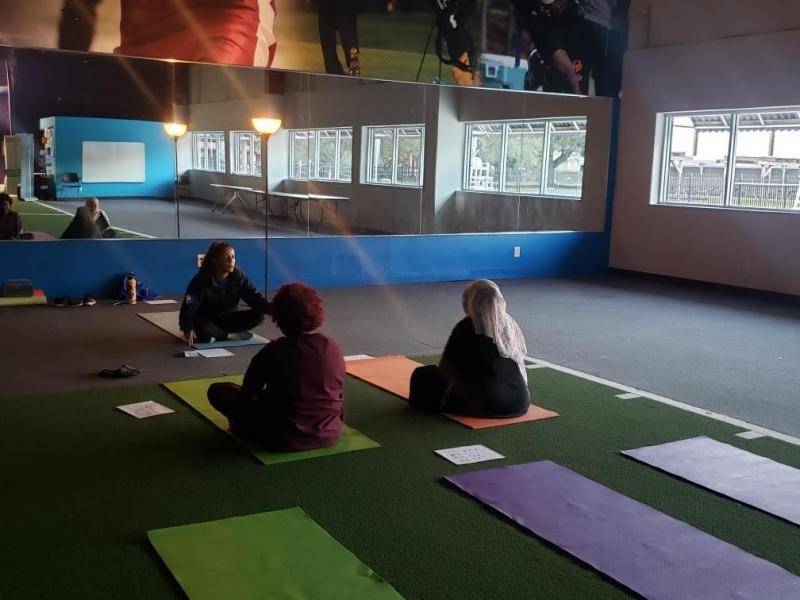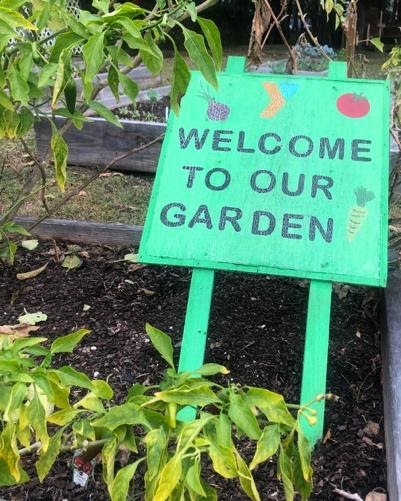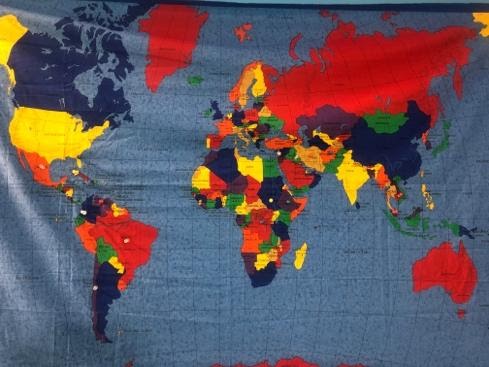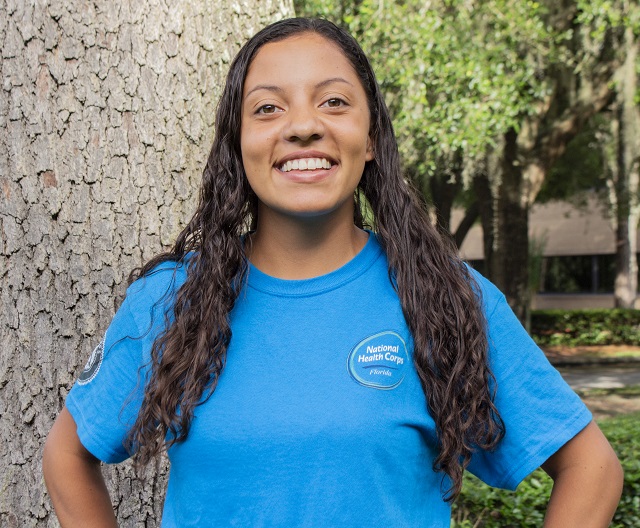An exciting part of my host site experience includes serving at the New American Welcome Center. The New American Welcome Center opens its doors to teach English education, citizenship preparation classes, healthy living classes, and more for refugee and immigrant families. I’ve had the pleasure of meeting people from all  over the world and getting to learn about their cultures as we cross paths at the Welcome Center. Our ideas of healthy lifestyles are not always one and the same, as I have learned much about alternative health practices in other countries. For a newcomer, a healthy lifestyle can be difficult to navigate in a country that you are just starting to get familiar with. To address this difficulty, I have begun a “Wellness Wednesdays” class in which new American families and I come together to discuss a range of health topics, exercise together, or to learn new healthy and low-cost recipes. The support group that has formed in this class has helped us to push each other to achieve healthy goals. Although this is a class that I teach, I also learn so much about ideas of health in countries such as Sudan, Burma, and Ethiopia. The health topics we discuss vary from mental health to nutrition to what to expect at routine doctors’ visits and chronic diseases.
over the world and getting to learn about their cultures as we cross paths at the Welcome Center. Our ideas of healthy lifestyles are not always one and the same, as I have learned much about alternative health practices in other countries. For a newcomer, a healthy lifestyle can be difficult to navigate in a country that you are just starting to get familiar with. To address this difficulty, I have begun a “Wellness Wednesdays” class in which new American families and I come together to discuss a range of health topics, exercise together, or to learn new healthy and low-cost recipes. The support group that has formed in this class has helped us to push each other to achieve healthy goals. Although this is a class that I teach, I also learn so much about ideas of health in countries such as Sudan, Burma, and Ethiopia. The health topics we discuss vary from mental health to nutrition to what to expect at routine doctors’ visits and chronic diseases.
In my conversations with those who attend my class, I’ve learned that certain health topics that are commonly discussed in the United States are sometimes not discussed as much in other countries. Mental health can often be a topic of taboo in other cultures because it may be seen as a weakness. Mental health is an especially important topic with the refugee and immigrant population because uprooting your life and adapting to a new place can be a difficult, and sometimes traumatic, experience. In our wellness classes, we like to discuss the many different ways we cope with stress and take time to rejuvenate. I’ve learned that in some other cultures, family is very important in times of stress. Some families have traditional soothing foods or teas that they will prepare in times of stress. In class, we’ve done yoga and practiced breathing exercises together as part of stress relief and good mental health practice.
 Nutrition is another important topic we have covered in class. Reading nutrition labels and learning the English terms of all things deemed “healthy” can be a daunting task for someone who has mainly spoken and read another language, such as Arabic, their whole lives. With the use of our community garden at the Welcome Center, we learn the names of various vegetables that are commonly grown in Florida, and we go over how to prepare these vegetables. In the future, I will teach cooking classes demonstrating how to cook low cost, healthy meals. Those who attend the Welcome Center will also have the opportunity to demonstrate how to cook a healthy meal that is a staple in their home country. Here, the two-way learning street of health will exemplify itself through food.
Nutrition is another important topic we have covered in class. Reading nutrition labels and learning the English terms of all things deemed “healthy” can be a daunting task for someone who has mainly spoken and read another language, such as Arabic, their whole lives. With the use of our community garden at the Welcome Center, we learn the names of various vegetables that are commonly grown in Florida, and we go over how to prepare these vegetables. In the future, I will teach cooking classes demonstrating how to cook low cost, healthy meals. Those who attend the Welcome Center will also have the opportunity to demonstrate how to cook a healthy meal that is a staple in their home country. Here, the two-way learning street of health will exemplify itself through food.
Wellness Wednesday class discussion has also tackled what to expect at routine doctor’s visits in the United States. To do so, we practice common English dialogues such as answering “What are your symptoms” and “Do you have a family history of….” Some new Americans feel discomfort when going to the doctors because they may not always be able to communicate their symptoms in its entirety due to language barriers. Chronic diseases and treatments associated with such diseases are important to cover for English language learners. Chronic diseases such as hypertension and diabetes seem to be common among the populations living near my host site. Language barriers may lead to misconceptions of what a disease is. Common misconceptions I’ve heard of these diseases include: “high blood pressure doesn’t last a long time” and “diabetes is when you have too much sugar”. Not initially understanding what a chronic disease is can negatively affect how the person follows their treatment plan. They may also feel discomfort because some cultures do not utilize primary care as often or in the same manner as here in the United States. I’ve learned that in some cultures, it is common to utilize herbal treatments before seeking medicine. For example, a newcomer from Uganda described a common cold treatment to be various herbs combined with boiling water to create a soothing steam. In talks about doctor’s visits and medicine, it is important to always show cultural competency.
As an American, I have only experienced the healthcare system here, but I still keep an open mind and am always intrigued by stories of health  practices in other countries. Through reading “The Spirit Catches You and You Fall Down,” I've come to understand just how important cultural competency is in the healthcare field. This novel shows the struggles for an epilepsy treatment plan due to differing cultural views. Patients have narratives, and if these narratives are truly understood, then treatments may be more successful. To achieve healthier lifestyles with newcomer populations, health should be viewed as a two-way learning street.
practices in other countries. Through reading “The Spirit Catches You and You Fall Down,” I've come to understand just how important cultural competency is in the healthcare field. This novel shows the struggles for an epilepsy treatment plan due to differing cultural views. Patients have narratives, and if these narratives are truly understood, then treatments may be more successful. To achieve healthier lifestyles with newcomer populations, health should be viewed as a two-way learning street.
Overall, the discussions newcomers and I have had together in class have allowed for an open learning environment for all. My hopes are that with this class, newcomers will feel more comfortable charting the course of a healthy life in the United States. A healthy lifestyle can be difficult to achieve with barriers like language and money, but with support and knowledge - it can be done!

This blog was written by NHC Florida Member Camille Saunders.
Camille serves at the YMCA as a Health Educator.
